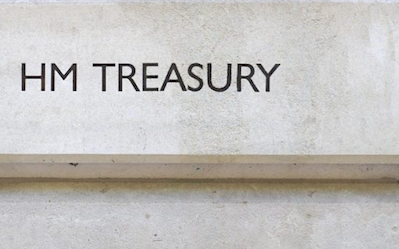UK central government borrowing in the financial year ending March 2024 was provisionally estimated at £120.7 billion, £7.6 billion less than in the same 12-month period a year ago but £6.6 billion more than forecast by the UK’s Office for Budget Responsibility (OBR).
That’s according to latest statistics from the UK’s Office for National Statistics (ONS).
UK borrowing – the difference between public sector spending and income – was £11.9 billion in March 2024, £4.7 billion less than in March last year, but higher than estimates.
The UK’s public sector net debt excluding public sector banks at the end of March was provisionally estimated at £2.694 trillion — 98.3% of GDP. This was 2.6 percentage points more than at the end of March 2023, and remains at levels last seen in the early 1960s.
The UK Debt Management Office issued a revised Net Financing Requirement (NFR) for 2024-25 of £277.7 billion, an increase of £12.4 billion compared with the forecast published at the Spring Budget 2024.
Susannah Streeter, head of money and markets, Hargreaves Lansdown, said: “This snapshot of the UK’s public finances gives Chancellor Jeremy Hunt even less opportunity to offer a windfall of tax breaks ahead of the General Election.
“The magic money tree is increasingly thirsty, stuck in a drought caused by increased spending on public services and benefits.
“Although the amount borrowed dropped sharply compared to last March, on a 12-month basis the picture is less pretty. The government has had to borrow £6.6 billion more over the last financial year than forecast by the Office for Budget Responsibility.
“Although tax receipts came in higher than last March, and there were large reductions in energy support scheme costs, and the amount of interest due on the debt, this situation looks set to deteriorate.
“Fewer interest rate cuts are now priced in by financial markets, which is likely to raise expectations about the costs of borrowing for the government.
“Mr Hunt has been reportedly mulling plans to cut National Insurance for this third time in a row this year and raising the threshold for stamp duty. But he’s balancing on an increasingly precarious branch as he tries to shake down treats for voters.’’
